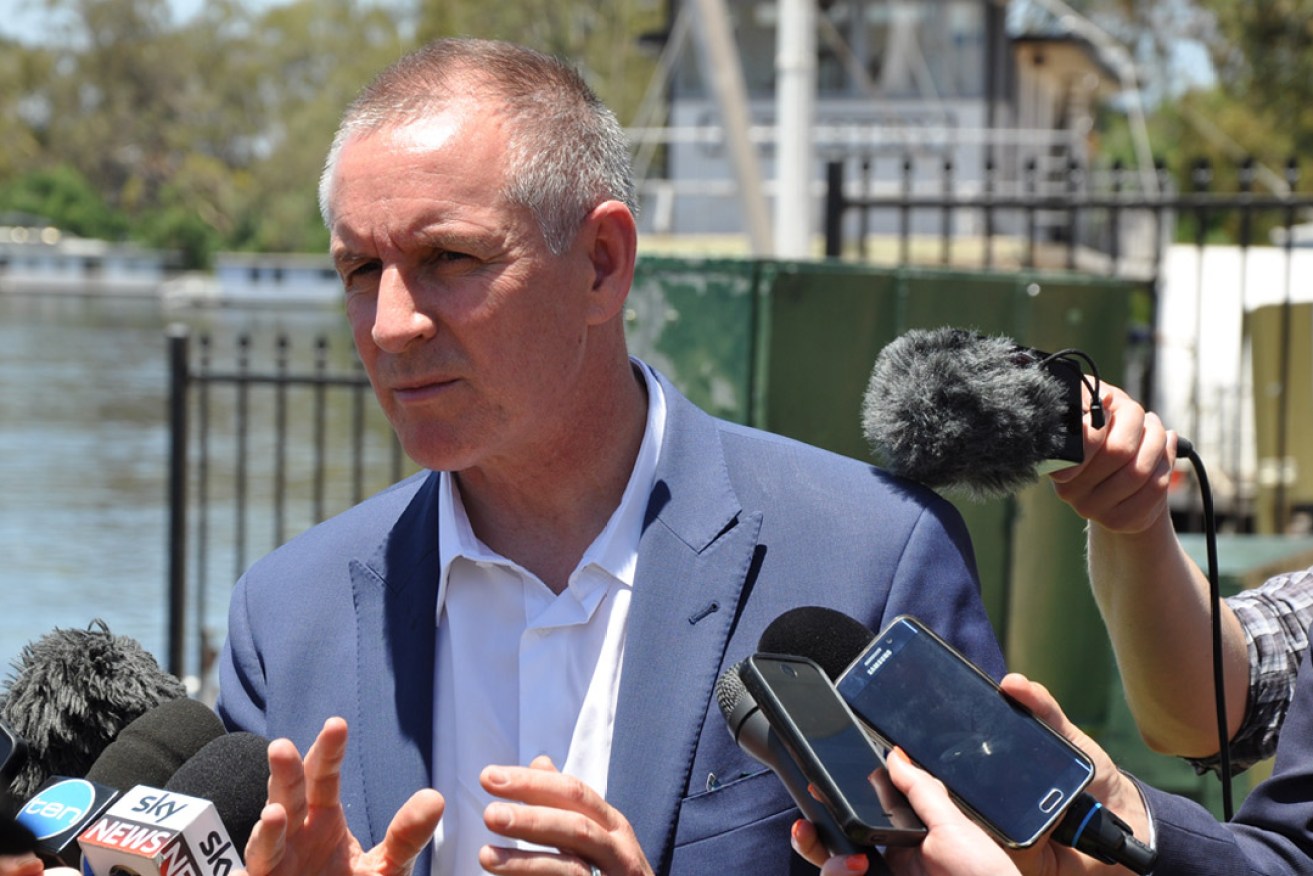Jay matches feds’ carbon backflip with his own
Premier Jay Weatherill is seeking to capitalise on federal Environment Minister Josh Frydenberg’s emissions trading backflip with his own government’s double backflip on a state-based ETS.


Premier Jay Weatherill. Photo: AAP
A year after rejecting the concept of a state-based carbon trading scheme – floated by his own Environment Minister – Premier Jay Weatherill today put the concept back on the table “in the absence of national leadership”.
Late last year, South Australian Environment Minister Ian Hunter told InDaily that if the Federal Government was “adamant” on rejecting a market mechanism for reducing carbon emissions, an interstate scheme “might be a reasonable option” – adding that he had raised the idea with interstate ministerial counterparts and SA bureaucrats had been tasked with researching it.
Hunter backed away from his comments soon after the interview, as did Weatherill, who told state parliament that a state-based emissions trading scheme was “unlikely to be successful or even possible” because of “very substantial constitutional barriers”.
But this morning – after Frydenberg claimed he had never mentioned an emissions intensity scheme (which he had, on radio, 33 hours earlier) – Weatherill told ABC radio he would be pressing for the states to team up on their own emissions intensity scheme for the electricity sector.
“Our first instinct is of course to seek a national scheme,” he said, adding it could be done without Federal Government support.
Weatherill said power prices in SA would go down if an “emissions intensity” scheme was adopted.
“It would clean up our energy system,” he said.
It would also encourage more base-load gas generation and increase competition, he said.
A spokesperson for Weatherill told InDaily this afternoon that the Premier’s comments about “constitutional barriers” last year were in reference to an emissions trading scheme that would be linked to international markets – namely jurisdictions in the US and Canada.
“The current emissions intensity scheme being discussed would be within Australia,” the spokesperson said.
Section 51 of the constitution gives the Commonwealth Government powers over “trade and commerce with other countries, and among the States”. Section 92 also guarantees free trade among the states. Legal experts contradicted Weatherill’s constitutional assessment at the time.
Prime Minister Malcolm Turnbull warned Weatherill’s proposal would put jobs and businesses at risk.
“The South Australian Labor government has delivered an absolute double whammy of not being able to keep the lights on and having the most expensive electricity in Australia,” he told Neil Mitchell on radio 3AW.
In circumstances that may be familiar to Hunter and Weatherill, Turnbull again left his Environment Minister Frydenberg to explain himself this morning as to why he said on Monday an emissions intensity scheme would be looked at as part of the government’s review before later denying it.
Turnbull said he believed energy policies should be national, given the country-wide electricity market.
“It is absolutely the Coalition’s position that we will not impose a carbon tax or an emissions trading scheme,” he said.
A report by Chief Scientist Alan Finkel to be presented at Friday’s Council of Australian Governments meeting in Canberra is expected to recommend an emissions intensity scheme scheme.
Emissions intensity schemes involve calculating the average quantity of emissions within a particular industry and forcing above-average emitters to purchase carbon “credits” to offset their emissions.
Finkel will brief state and territory leaders and Turnbull at tomorrow’s COAG meeting about a national blueprint on energy security and reliability in the wake of blackouts across SA earlier this year.
Deputy Liberal leader Julie Bishop said energy needed to be as affordable as possible.
“The prime minister has laid out the parameters of the review and it must be in accordance with our energy policy,” she said.
Treasurer Scott Morrison described the review, previously announced by the Abbott government, as “housekeeping”.
He accused the states of being driven by ideology.
“We are interested in the outcomes, which is lower pressures on energy prices for families and households.”
– with AAP




